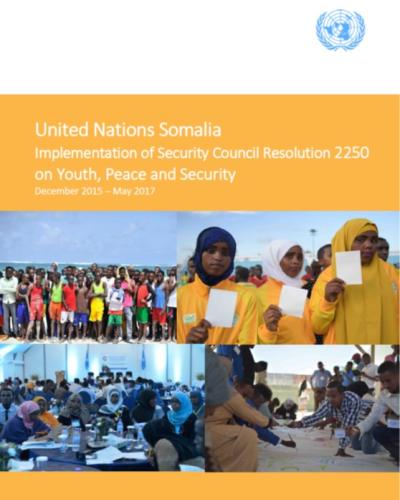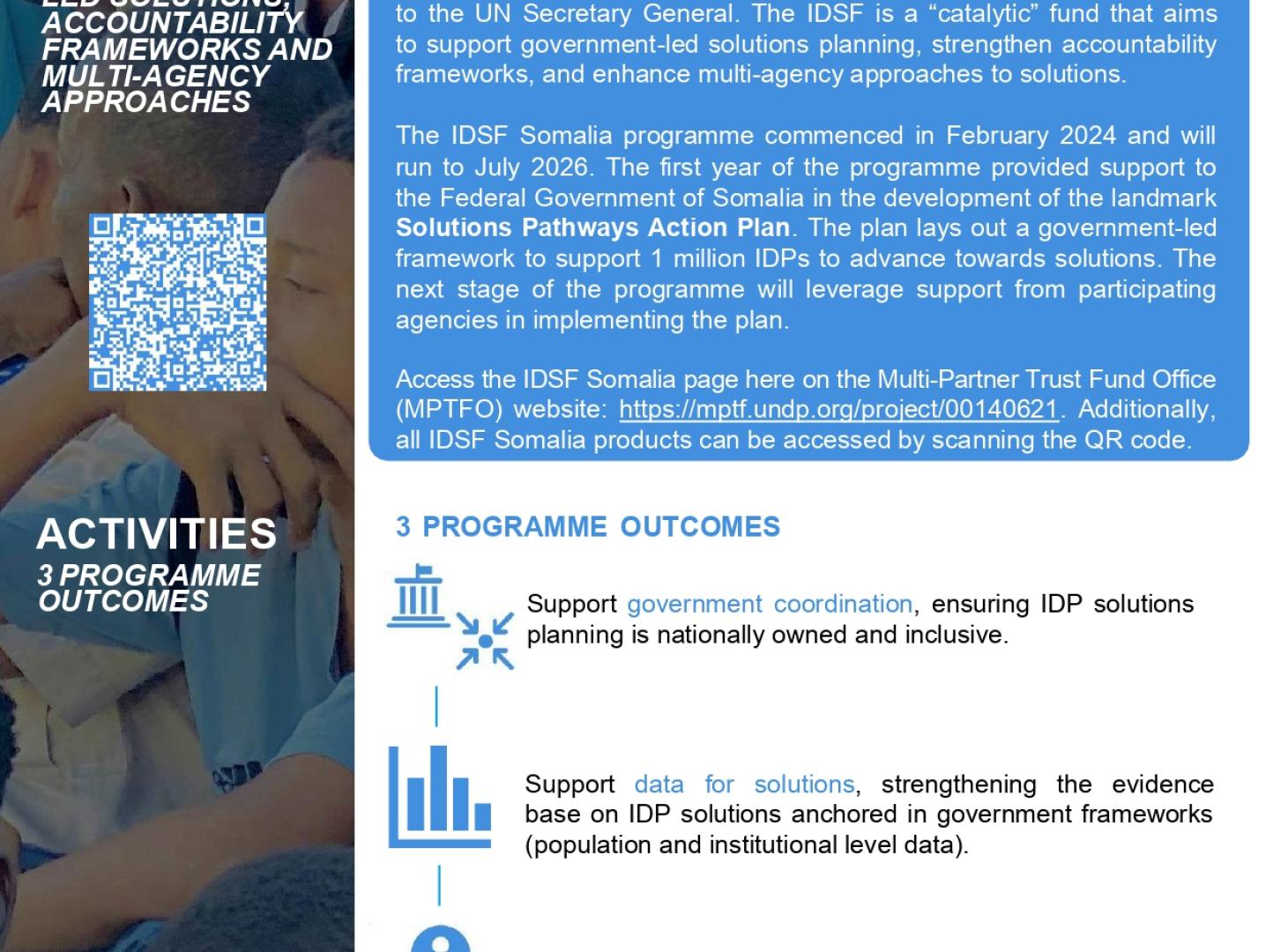Implementation of Security Council Resolution 2250 on Youth, Peace and Security December 2015 - May 2017

Security Council Resolution 2232 (2015) “reaffirms the important role of women and youth in the prevention and resolution of conflicts and in peacebuilding, stresses the importance of their participation in all efforts for the maintenance and promotion of peace and security” and “encourages UNSOM to enhance its interaction across Somali civil society, including women, youth, and religious leaders in order to ensure that the views of civil society are incorporated in the various political processes.”
On 9 December 2016, the Council unanimously adopted a ground-breaking resolution on Youth, Peace and Se-curity, recognising that “young people play an important and positive role in the maintenance and promotion of international peace and security”. Resolution 2250 (2015) identifies five fundamental pillars for action: (1) par-ticipation; (2) protection, (3) prevention; (4) partnerships; and (5) disengagement and reintegration. This land-mark resolution urges Member States to give youth a greater voice in decision-making at the local, national, regional and international levels, and to consider setting up mechanisms that would enable young people to participate meaningfully in peace processes.
Building on the recommendations from the above-mentioned Security Council Resolutions, the UN Youth Strat-egy for Somalia — part of the UN Strategic Framework (2017-20) — recognises the role of youth as partners in development efforts. The Strategy articulates an integrated framework for the efforts, programmes and initia-tives currently being implemented by the UN, and aims to maximise coverage and impact to ensure sustainabil-ity, thereby contributing to the achievement of the objectives of the UN in Somalia.
Placing social, political and economic empowerment at the core of the UN Youth Strategy is a vital prerequisite for lasting transformation in Somalia. The multidimensional concept of empowerment – social, economic and political – provides ample scope to harmonise approaches to youth policies and programming, and harnesses the full potential of young people to become recognised social and economic actors, as well as peacebuilders.





